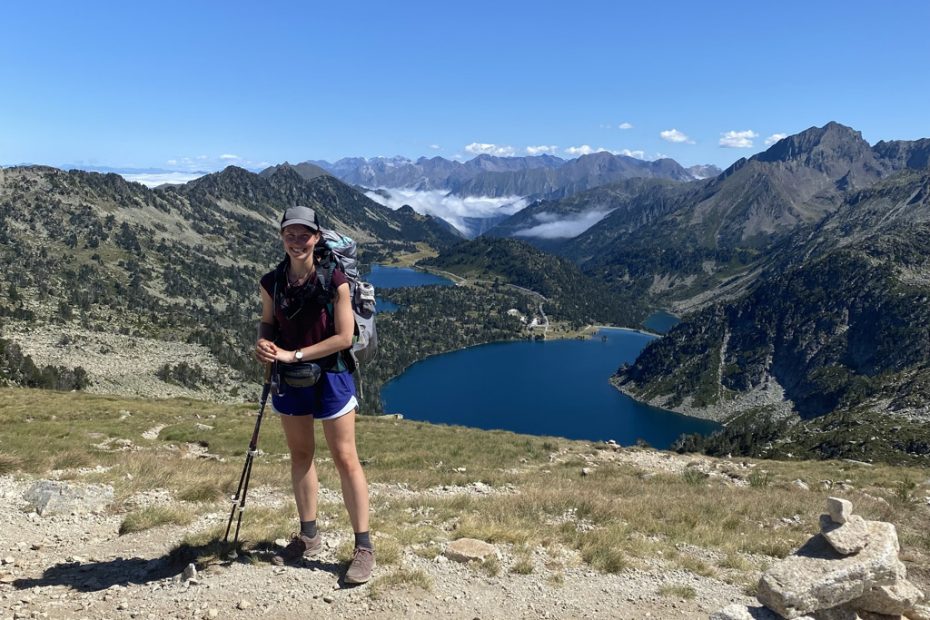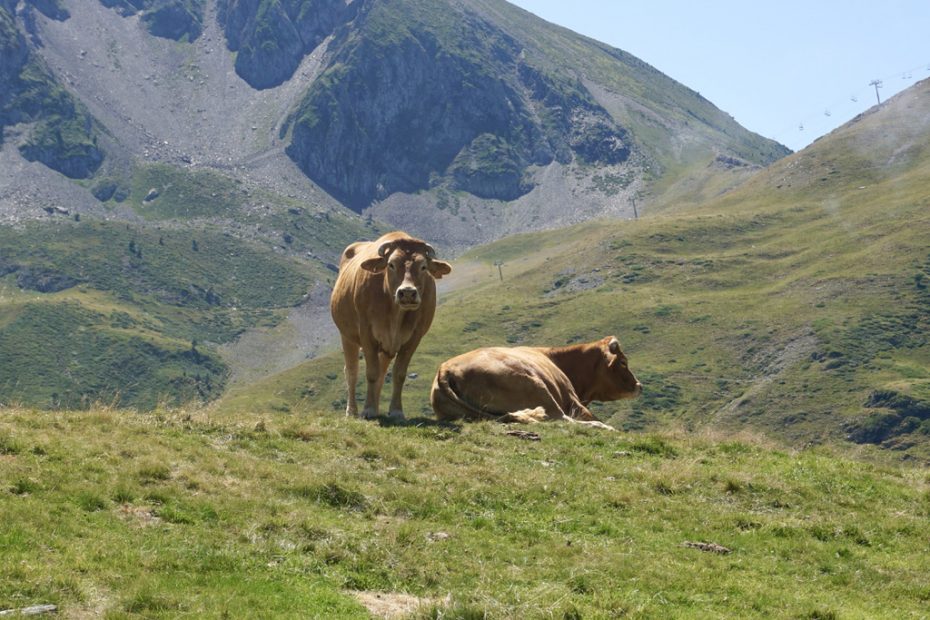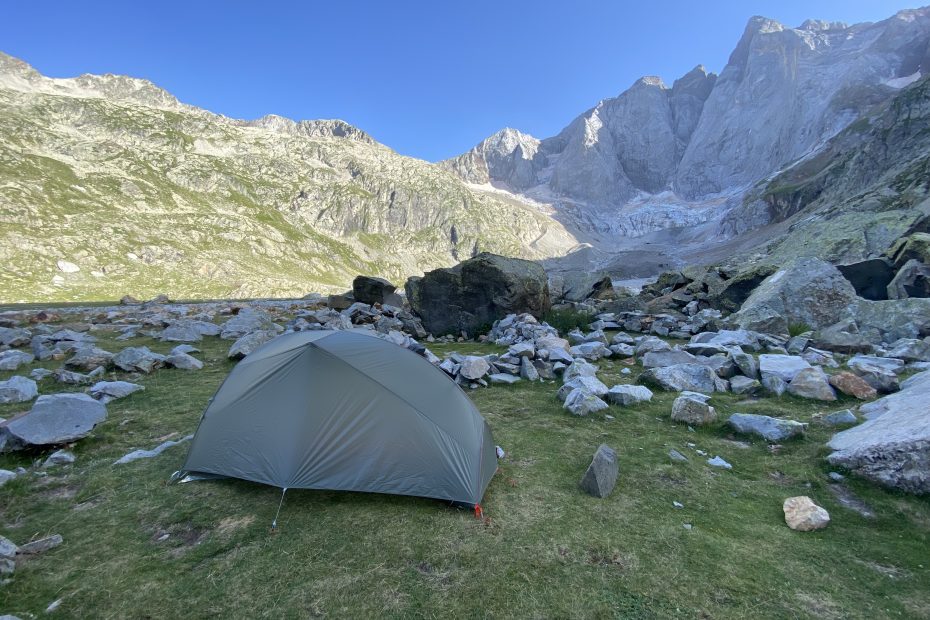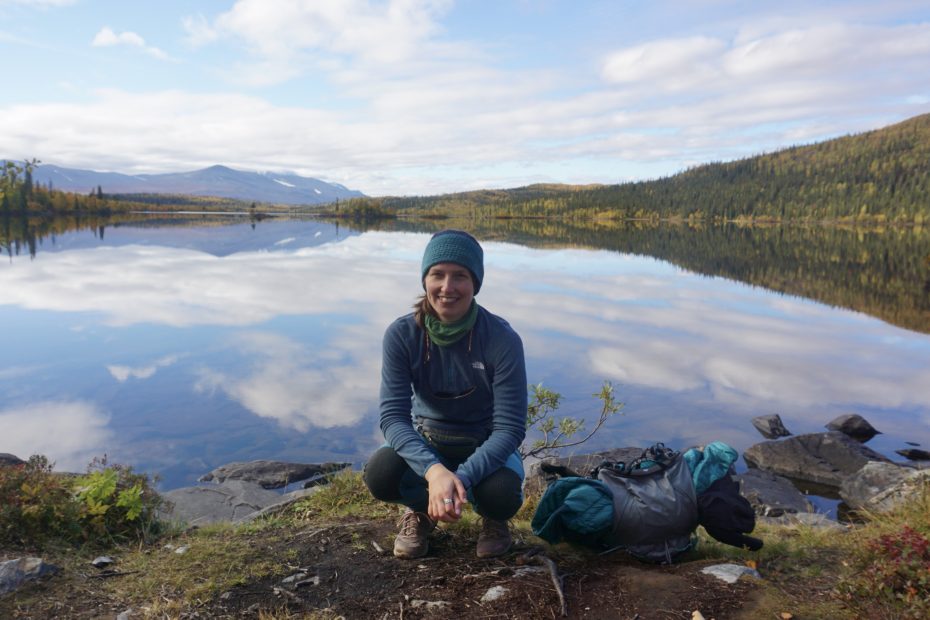When I announced that I’m going to hike for a few weeks alone, I saw a lot of raised eyebrows. Aren’t you scared? Isn’t it dangerous for a girl to hike alone? Won’t you feel lonely? Those were only the top 3 of all the questions I received. So how was it? Which of the solo hiking concerns were valid and which were full of irrational assumptions?
In this post, I will discuss the most popular concerns regarding solo hiking by sharing my personal experience from my solo hikes on the GR10 trail in the Pyrenees (France) and the Kungsleden trail (Sweden). I will also share what I did to mitigate those concerns.
In both of these hikes, I’ve spent 9-10 days hiking, walked around 200km each time, and was camping most of the nights. I’ve done a couple of long-distance hikes before, so I went on these trips with experience.
Disclaimer! Some of the dangers or concerns, especially regarding the wildlife, depend very much on the terrain and nature of the trail you’re hiking in. My experience is based on European trails and as it is my experience, it is influenced by my personality, taste, and needs, so if you strongly disagree with any of my points, it might just mean that you have different preferences and that is completely fine (peace).
Concern #1: It's dangerous for you to hike alone (as a woman), more known as your loved ones will be worried about you
I heard this concern the moment I told my mom I’m going on a long hike alone. While I get the point that the family will be worried, I see a few problems with this concern:
- It might discourage you from hiking alone as you don’t want to upset your family and make them worry.
- The ones worried about you (e.g. parents) are usually not hikers themselves, they don’t know about the potential dangers (or lack of them) and they cannot rationally compare those dangers to other environments. E.g. is it more dangerous to hike alone than to do a city trip alone? Without experiencing both, people cannot really answer this question, right? However, they often act as if they know the difference and risks involved.
That being said, I consider this concern more irrational than a valid worry. Something might happen to each of us every day, right? However, this argument will not remove the fears of your loved ones. Here’s what I did:
- I made a clear daily plan: where I’m going to hike, for how long, where will I sleep, etc. Then I shared this plan with my family, so they know how my days look like. For the plan, I used Google Sheets, which allows me to share sheets with anyone and easily update them on the phone.
- I got myself a satellite communicator, Garmin mini InReach. This baby was by far the best purchase I’ve made this year. Every day I would send a preset message through the InReach to my family announcing the start and finish of my hike. As I often did not have phone reception, I could still reach them via those preset messages or even send a text message if I wanted (paid service though). And finally, if something happened, I knew that I could get help by pressing an emergency button.
I found that clear plans and regular communication worked very effectively. While staying in touch regularly does not make the trail less dangerous, it does provide some peace of mind to people at home. Many of the concerns about solo hiking come not from the person intending to hike, but from people around them. It doesn’t have to be that way.
Concern #2: You may injure yourself
Yes, I may. But I may injure myself when hiking with someone as well. “But that other person can help you if you’re injured. Nobody can help you when you’re alone” you might say. In all honesty, unless you’re hiking with a professional climber or a doctor, your fellow hiker very likely will not be able to help with an injury. At best, they can call help.
Now here’s the catch. I hiked with my boyfriend for years and we never got ourselves a satellite communicator. As there’s often no reception in the mountains, an injury would mean that the healthy one needs to hike to the nearest hut or even descend to the valley, which can be a few hours away.
My point is that I often took fewer precautions when hiking together with my boyfriend instead of hiking alone. I only got the satellite communicator for my solo trips, while it should have been part of my gear on remote hikes with my boyfriend too. The concern of an injury is valid regardless of whether you’re hiking alone or with someone. What I find a bit irrational is to claim that you’re much more exposed to injuries when hiking alone.
To prevent the injuries, I pick my trails carefully and critically assess my capabilities. I also have a satellite communicator to call for help anytime I need it. To me, it gives the peace of mind that I’m actually not alone if something happens.
Concern #3: You may get attacked (by animals or people)
This was one of the main personal concerns before deciding to hike alone. Let’s split the two “predators”.
Animals. This concern is very valid for trails that are known for a large number of predators. Initially, I was eying hikes in Romania but changed my mind because there are so many bears in the Romanian mountains, that I absolutely didn’t want to take the risk. So my mitigation of this concern is very simple – if I don’t feel comfortable about the wildlife on a trail, I pass that trail. On the other hand, there are a few bears in the Pyrenees and I assumed that my chances to meet one are close to zero, so I went hiking there.
Another good practice is to find out how to deal with the animals that are common on the trail you’re about to hike. To me, this knowledge gives the confidence and assurance that, in case of an encounter, I have a plan. For example, in the Alps, the main animal posing a danger to hikers is the shepherd dog, also known as Patou. This article describes very well what to do when encountering a Patou and I can say from my personal experience – it works! As I saw this information in various mountain huts, once I met a Patou, I knew what to do and how to act.
People. Single hikers are definitely less imposing than a group of hikers, making them an easier target. As a female, I also know that the fear of being attacked is just there. I grew up in a country where girls are very much discouraged to wander alone, especially in the dark. So I was a bit worried about this aspect of hiking alone too.
Let’s look deeper into this concern. The chances of being attacked by someone in the mountains are much slimmer than in a city. A good friend of mine has joked “A serial killer wants to optimize their success rate and there are far more lonely girls in a city than in the mountains”. Jokes aside, an attack in the mountains is a very rare event. It is far more likely to get into a car accident than be attacked by someone in the mountains. If you’re curious about the exact odds, a fellow hiker did a nice analysis about the chances of death by an attack on the Appalachian Trail.
Given the stats, this concern seems to be more irrational than valid. For me, the acknowledgment, of how rare an attack is, has helped to calm down before the trips. While on the trail, I feel very comfortable in remote areas, while around the valleys I keep myself more alert and listen to my gut feeling. I also make sure I’m not listening to music on my headphones in places with less visibility, which is a good practice for encounters with animals too.
Concern #4: It feels lonely to hike alone
I agree with this concern to some extent. While hiking in the Pyrenees, even though there were lots of Frenchies hiking around, I did start to feel lonely after a few days. I liked the solitude in the mornings and hiking alone. I would wake up when I wanted to, create my morning system without needing to adjust to someone, and hike the trail in a way that suits me and only me with countless pauses for pictures and random detours. But the evenings did feel lonely. I missed chatting with someone about the day or having dinner with a company.
What happened after a few days is that I met two other solo hikers and we hiked together from then on. Well, most of the time we would only meet at the end of the day and spend the evening together, while during the day we would enjoy the solitude of hiking alone. This was a perfect setup for me.
On Kungsleden I didn’t feel lonely at all. I would hike alone the whole day, hardly meeting anyone, but in the evening my path would somehow cross with fellow hikers and we would spend the evening together. I stayed a few nights in a hut, which also guarantees a company.
This concern is a very personal thing. I like to have some me-time, but I need occasional chats, while others are perfectly fine with being on their own for days. If you’re thriving in crowded places and you love companies, loneliness while hiking solo might be a valid concern for you.
So what to do if you’re feeling lonely on the trail? Don’t be afraid to chat with fellow hikers, especially if they’re solo as well. The hiking community is usually very open and friendly, random chats on the trail are very common. I actually felt that I was more approachable because I was alone. You can also pick more popular trails, which will ensure you’re surrounded by fellow hikers all the time, e.g. Tour du Mont Blanc. If you’re afraid of lonely evenings, staying in a mountain hut could be a solution as well.
Concern #5: You won't have the mental support of your hiking partner(s)
Yes, that is true. If there is a challenging trail or if you are low in spirits, there is nobody to “lift you”. For me, this part of solo hiking was a personal challenge. I wanted to prove to myself that I can hike alone in the mountains, which in the end led to a sense of accomplishment and a great boost in self-confidence.
What I also noticed is that, compared to hiking with a partner, on solo trips, I was much more critical about the challenge I want to face.
While on the GR10 trail, I initially planned to cross the mountains to Spain and hike some of the most challenging sections of the trail. It would have been scrambling and steep ascents/descents.
However, the day before this section I changed my mind. I didn’t want to put myself through it. I didn’t feel comfortable hiking that section alone. It just wasn’t the challenge I was looking for on that trip. If you’re feeling that a hiking trip you chose is going to put you in a great physical and mental challenge, you might want to reconsider whether you want to do it alone. Maybe there’s an alternative, which will make you feel much more comfortable.
I would say this concern is valid if you are not experienced and you decide to go on a challenging trail. Otherwise, hiking alone might actually boost your mental strength. You’re hiking this trail on your own, nobody is taking care of your stuff or your thoughts, but you. You rock!
Concern #6: You will be scared to sleep in a tent alone
Yes, that is true. If there is a challenging trail or if you are low in spirits, there is nobody to “lift you”. For me, this part of solo hiking was a personal challenge. I wanted to prove to myself that I can hike alone in the mountains, which in the end led to a sense of accomplishment and a great boost in self-confidence.
What I also noticed is that, compared to hiking with a partner, on solo trips, I was much more critical about the challenge I want to face.
While on the GR10 trail, I initially planned to cross the mountains to Spain and hike some of the most challenging sections of the trail. It would have been scrambling and steep ascents/descents.
However, the day before this section I changed my mind. I didn’t want to put myself through it. I didn’t feel comfortable hiking that section alone. It just wasn’t the challenge I was looking for on that trip. If you’re feeling that a hiking trip you chose is going to put you in a great physical and mental challenge, you might want to reconsider whether you want to do it alone. Maybe there’s an alternative, which will make you feel much more comfortable.
I would say this concern is valid if you are not experienced and you decide to go on a challenging trail. Otherwise, hiking alone might actually boost your mental strength. You’re hiking this trail on your own, nobody is taking care of your stuff or your thoughts, but you. You rock!
Concern #7: You might attract (unwanted) attention
This is a concern I wasn’t aware of before embarking on a solo trip, but I feel that it is good to know, especially if it’s your first time.
I don’t know about the US or Asia, but here in Europe, it is still way less common to hike alone than to do it in a group or with a partner. By now I’ve hiked alone in the Netherlands, France, and Sweden and each time I met people who, after a polite “hello”, would immediately ask “are you hiking alone??” in a very surprised tone. What follows is an awkward conversation with me trying to convince those people that I’m fine, this is what I wanted. Hilarious. These conversations happened only because I was alone.
Sometimes I even hear people talking about me a few meters away or staring at me as I’m some kind of an alien. In most of those cases, I just shrug off the looks, say hi with a smile, and walk away confidently.
I’ve also heard about guys having troubles backpacking alone as other people perceive them as perverts or weirdos, especially if they want to stay in designated campsites. Why would you hike alone? There’s something fishy about him… It is just shocking and sad.
If you don’t feel comfortable about this unwanted attention, you could pretend you’re part of a group, that is waiting for you around the corner. Another solution would be to go hiking to places or countries where solo hiking is more common, e.g. pilgrimage trails are very popular among solo hikers. I also met quite a few solo hikers on the Kungsleden and GR5 trails.
The best advice is to ignore it. So far I did not find it as a serious concern, it’s just something that happens to solo hikers. The attention from hiking solo probably will not go away anytime soon, but the more open-minded we all are, the better.
And those are the most common concerns about hiking alone. I hope this overview gives you a good indication of what to expect from a solo hike, what is a valid concern, and how to address it. Hiking solo is definitely not for everyone, but it doesn’t have to be perceived as a complete no-go.
Hiking in the mountains requires careful preparation and planning, regardless if you hike alone or in a group. Of all the tips shared in this post, the most important one is to follow your gut feeling. If something doesn’t feel right, don’t do it.
Did I miss any big concerns? Let me know in the comment section below. Safe trails and good luck finding your next hike, be it with somebody or on your own.






